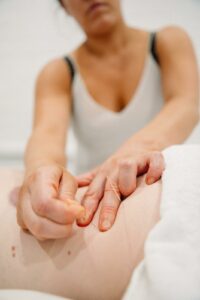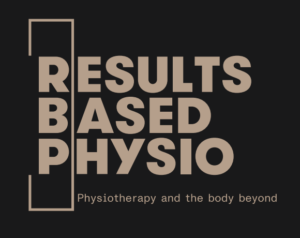Women’s Health Physiotherapy is an area of physiotherapy specialising in issues unique to females, and how to approach the psychological and physical changes that come with hormonal fluctuations.
The female reproductive system is incredibly complex and can be affected by all aspects of our health, including the musculoskeletal and nervous systems which physios are mostly concerned with. Women’s Health Physiotherapists help women deal with the fallout of huge changes such as pregnancy and menopause, as well as day to day challenges such as correlating your life to your menstrual cycle or dealing with reproductive pain.
 MANUAL THERAPY
MANUAL THERAPY
Manual treatment methods such as massage, dry needling and TENS (Transcutaneous Electrical Nerve Stimulation) can be used in the pelvic, abdominal or lower back areas to relieve pain caused by menstruation, endometriosis. Adenomyosis, digestion and other issues linked to the reproductive system. Women’s Health Physiotherapists can also provide patients with tools to better manage their pain at home, such as stretching and breathing techniques, strengthening exercises or even recommending products designed to alleviate female reproductive pain.
THE PELVIC FLOOR MUSCLES
Many issues that involve the Female Reproductive System also involve the Pelvic Floor muscles that lie under/around reproductive tissue. Common issues such as incontinence (urinary and feacal leakages), prolapse and some sexual dysfunctions such as pain during intercourse, can be helped by addressing the Pelvic Floor muscles. A. Women’s Health Physiotherapist can assess the strength and integrity of the pelvic floor muscles with an internal vaginal examination, and then base their treatment and rehabilitation plans around this starting point.
PREGNANCY
When someone goes through pregnancy, their body changes drastically and they often need extra help to know how to care for it. Weight gain, pain, fatigue, swelling, mood and motivation changes are all normal parts of a pregnancy but they can be difficult to deal with when they all occur so rapidly. A Women’s Health Physiotherapist can help you adjust to these changes by providing specialised treatment, including pregnancy massages, and designing exercise and stretching programs that are pregnancy-friendly. Trained Women’s Health Physiotherapists can also provide advice on sleeping, standing and sitting posture with a growing belly in order to feel more comfortable during pregnancy.
A Women’s Health Physiotherapist can also be a great addition to your care team as you recover from pregnancy and childbirth. This contribution can include exercises, posture and movement recommendations, and manual treatments. Together, these interventions can help you get back to your regular activities safely and comfortably.
The physical and hormonal changes that people with a female reproductive system experience can be very overwhelming, even without pathologies such as endometriosis or pelvic organ prolapse. Seeking help and advice from a Women’s Health Physiotherapist can make this experience easier and less stressful.




